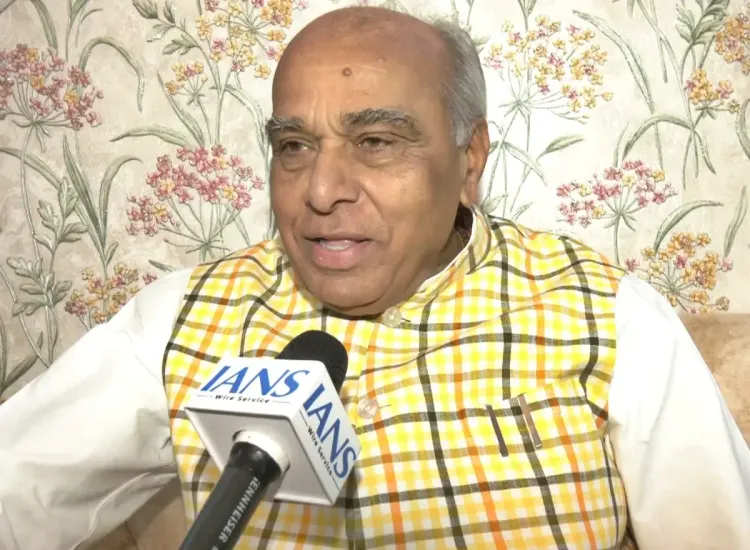Jagdambika Pal: Waqf Board is an Administrative Entity, Not Religious

Synopsis
Key Takeaways
- Jagdambika Pal emphasizes the non-religious nature of Waqf Boards.
- Inclusion of competent non-Muslims can enhance board efficiency.
- Judicial rulings support the administrative classification of Waqf Boards.
- Proposed changes aim to improve management and transparency.
- Digitization of records is crucial for future Waqf property management.
New Delhi, April 17 (NationPress) The head of the Joint Parliamentary Committee (JPC), Jagdambika Pal, on Thursday dismissed the idea of including non-Muslim members in the Central Waqf Councils and State Waqf Boards, labeling it an ‘encroachment’ on the religious rights of minorities. He emphasized that this measure is crucial for the better management and preservation of Waqf properties.
In an interview with IANS, the JPC chief articulated that the Waqf (Amendment) Act has been introduced with a clear intention: ‘to show respect for Islam and serve as a gift for Muslims’.
“Waqf Boards should be seen as administrative, not religious entities. Therefore, if competent and effective non-Muslims are included in the Board, it will not infringe upon the religious rights of minorities. Instead, it will boost transparency, accountability, and efficiency in managing Waqf properties,” Pal stated.
His comments come during the Supreme Court's review of several petitions, which also raised queries regarding the participation of non-Muslims in the Waqf Board.
Pal referred to two judicial decisions from 2010 (Ram Rajya Foundation Vs Waqf Board) and 1982 in Karnataka, highlighting that both courts recognized Waqf Boards as administrative bodies.
“As affirmed by judicial rulings, the Waqf Board functions as an administrative body, and the JPC's recommendation aims to strengthen its framework by allowing the inclusion of capable and efficient managers,” he explained.
He also mentioned the JPC’s suggestion to include an Islamic scholar in the Waqf Tribunal as a progressive initiative.
On the matter of the Collector being the ‘final authority’ in property disputes, he pointed out that this provision has been revised, and now a state-level secretary or Commissioner-level officer will resolve disputes, effectively eliminating potential biases.
To ease concerns regarding the removal of the ‘Waqf by user’ clause, he clarified that the legislation would apply prospectively, not retroactively.
“It is vital to digitize records. Moving forward, every property designated as ‘waqf’ should be recorded by the government. This will enhance transparency and reduce the potential for property disputes,” he argued.









